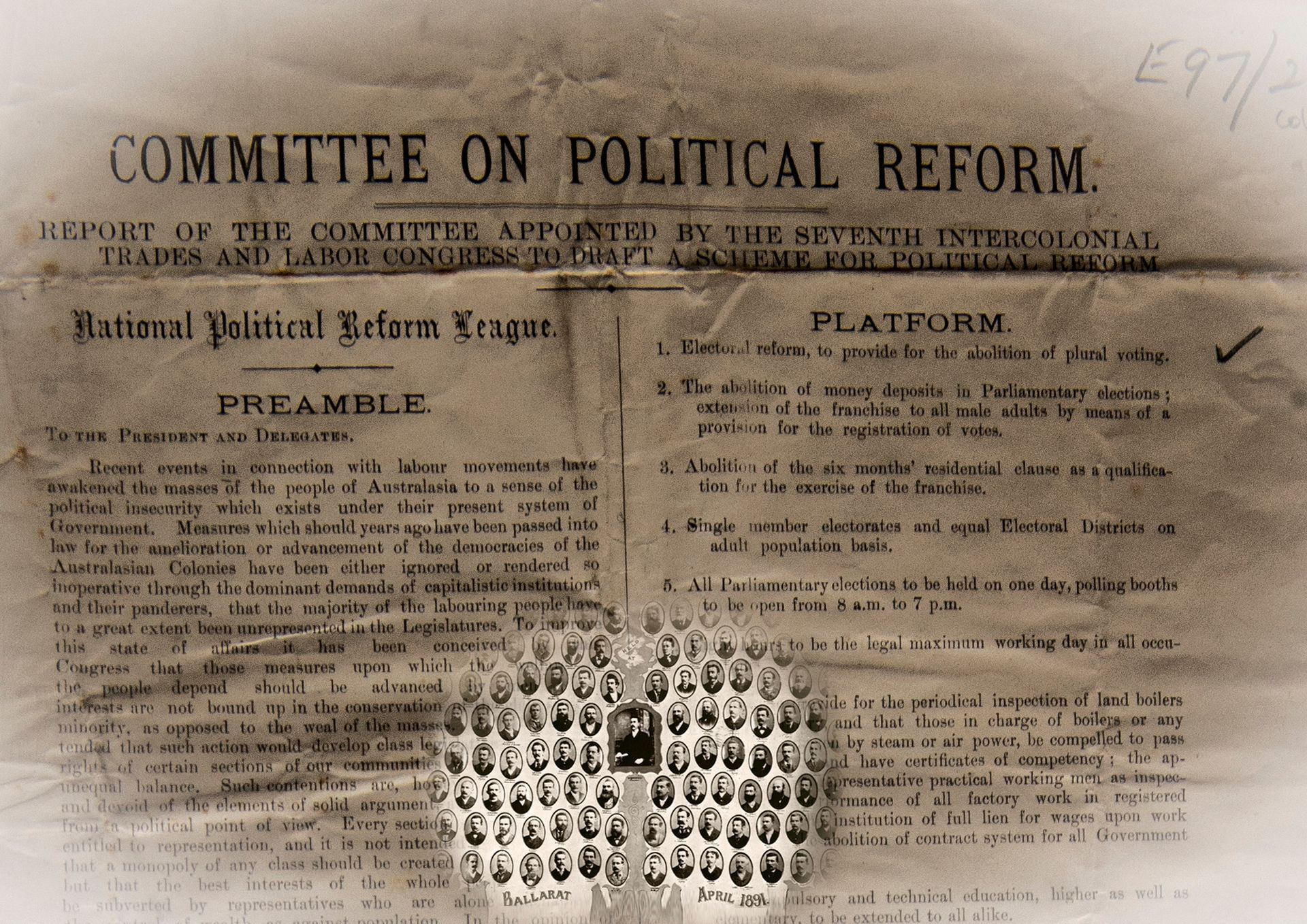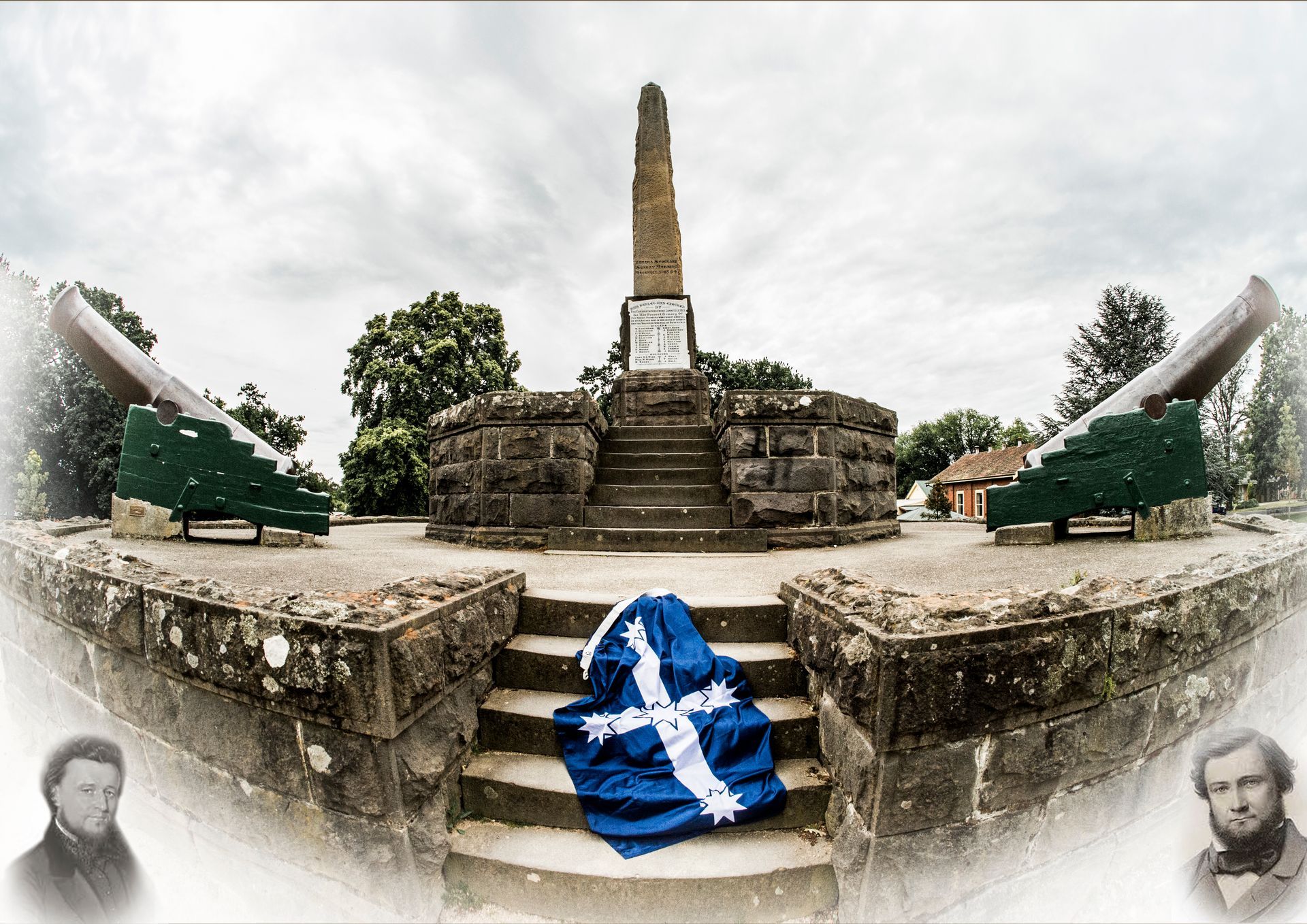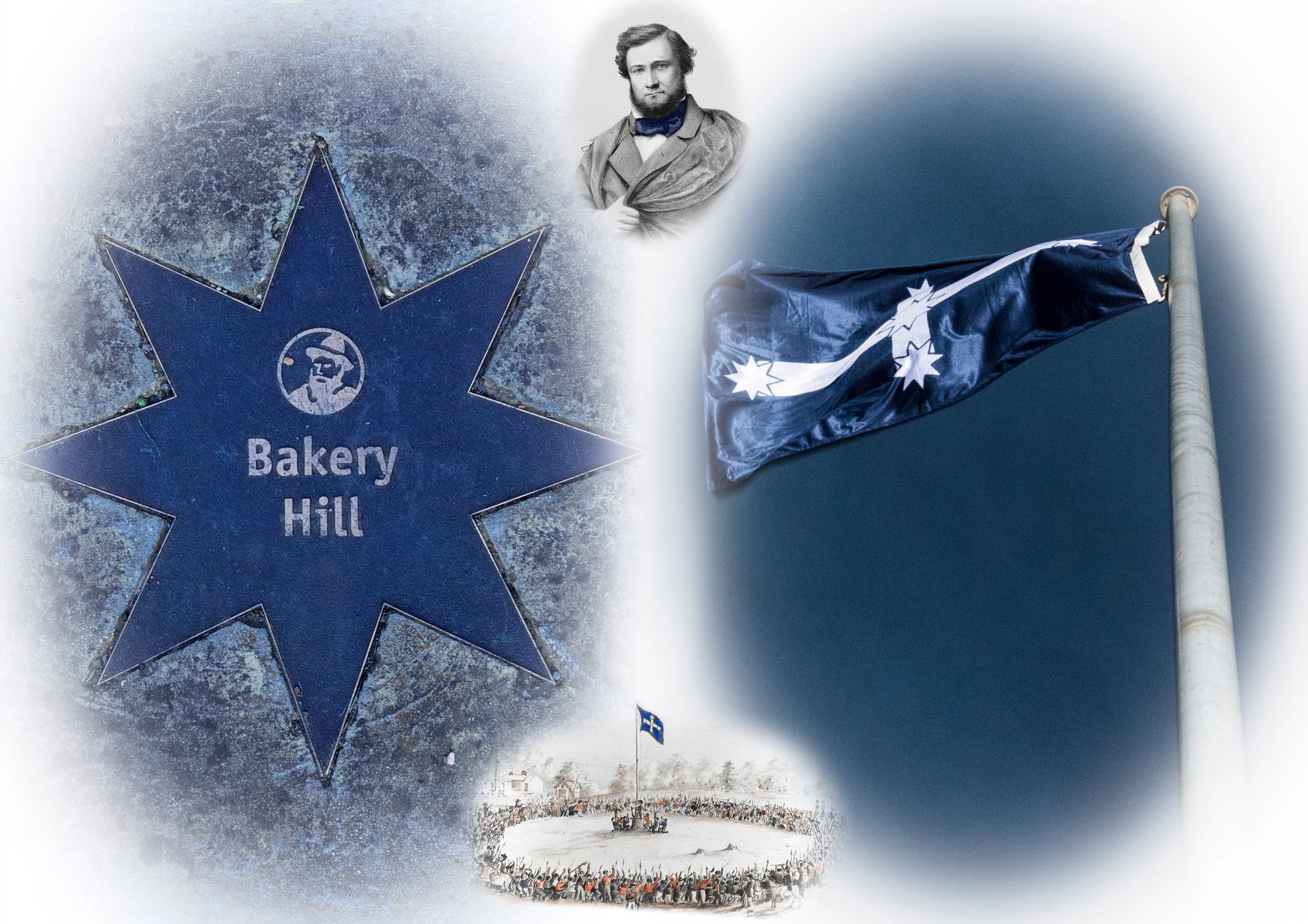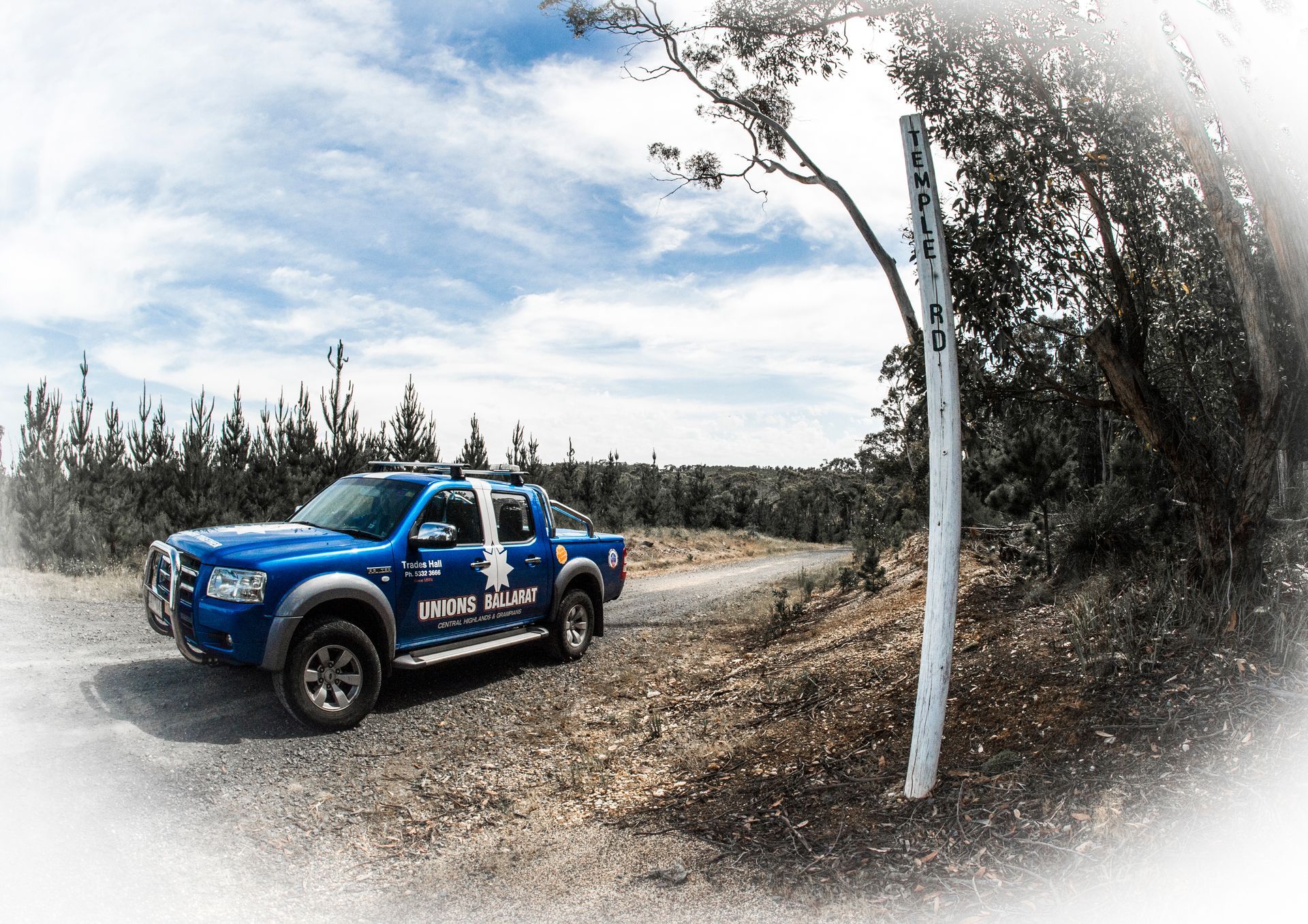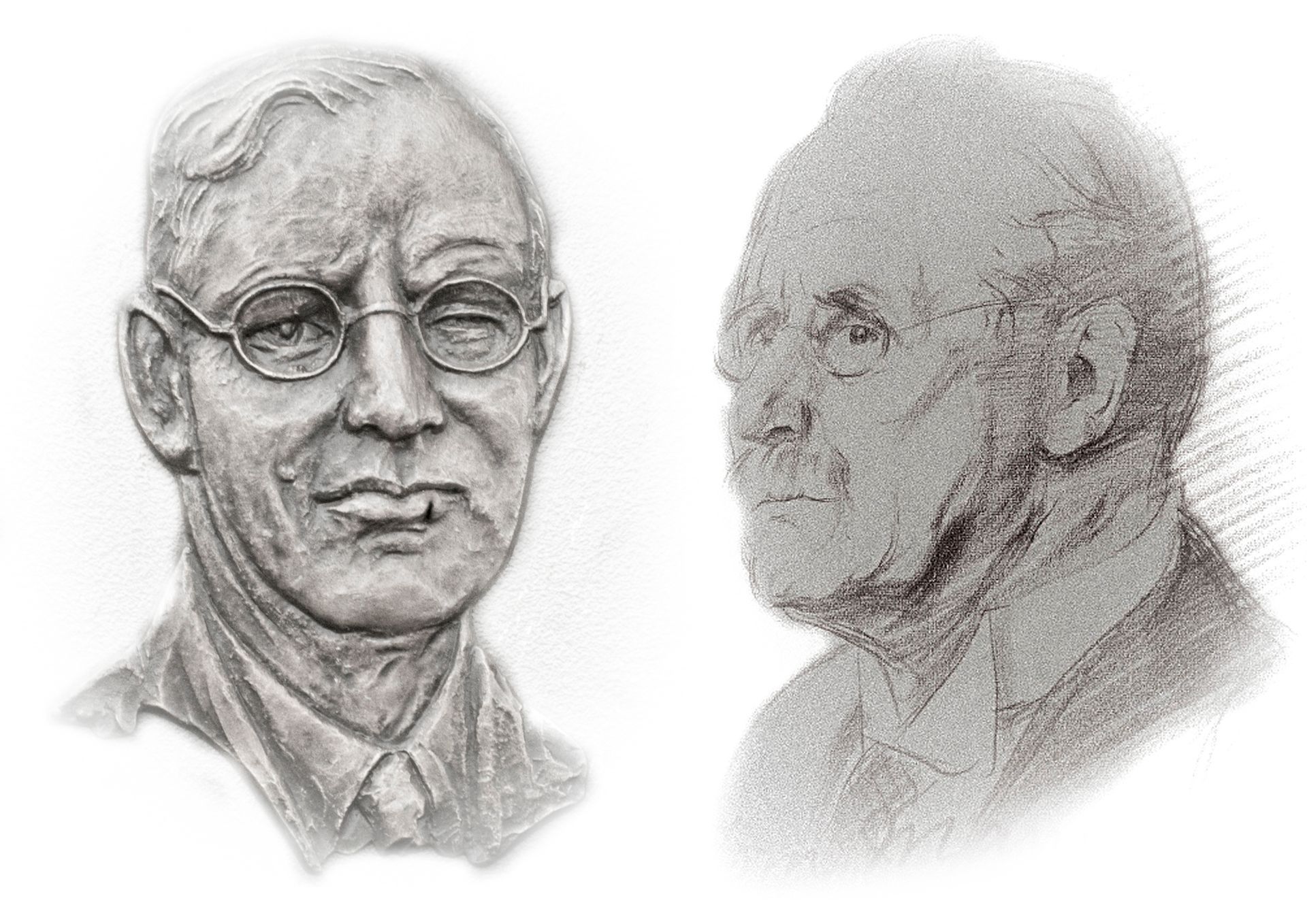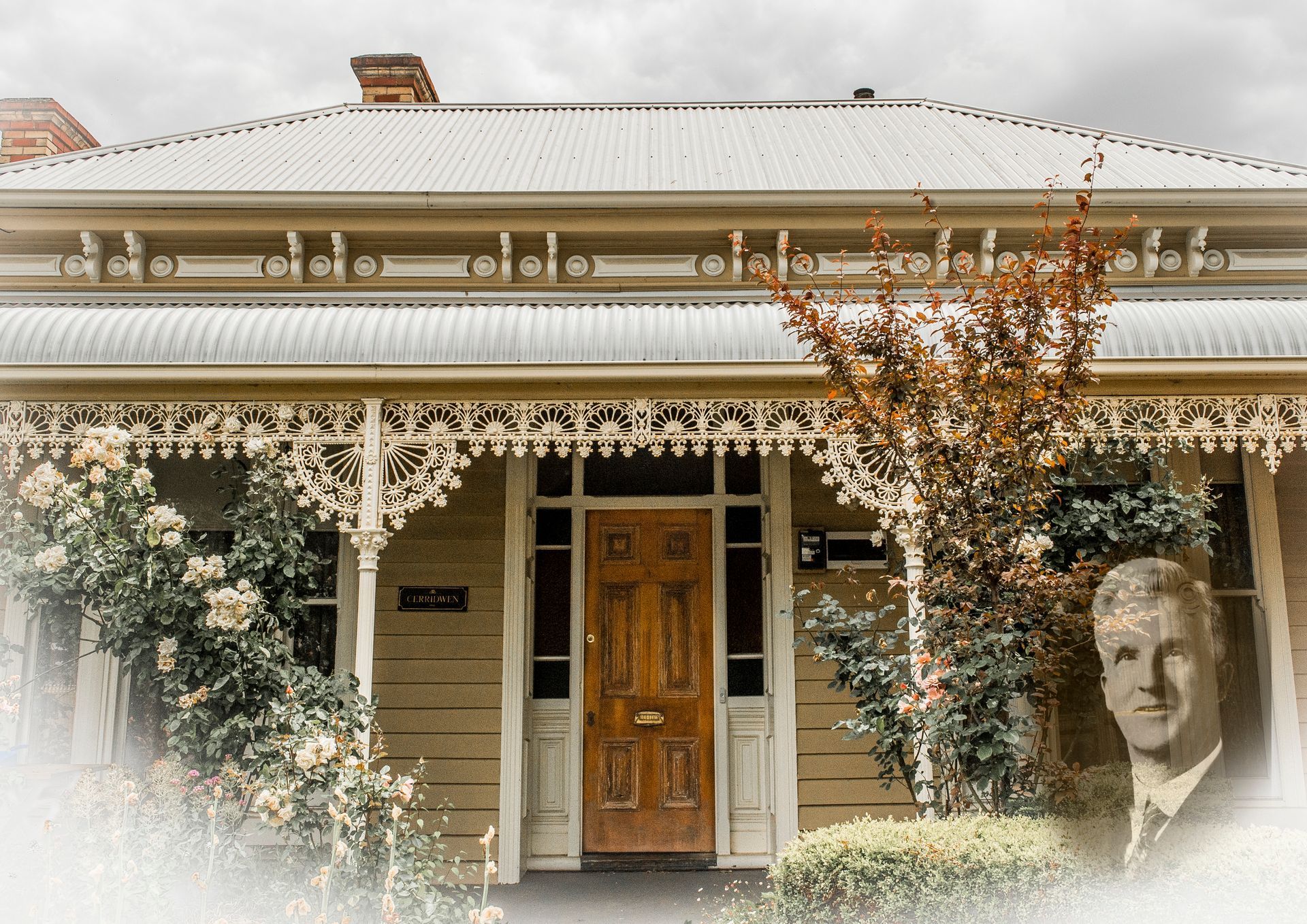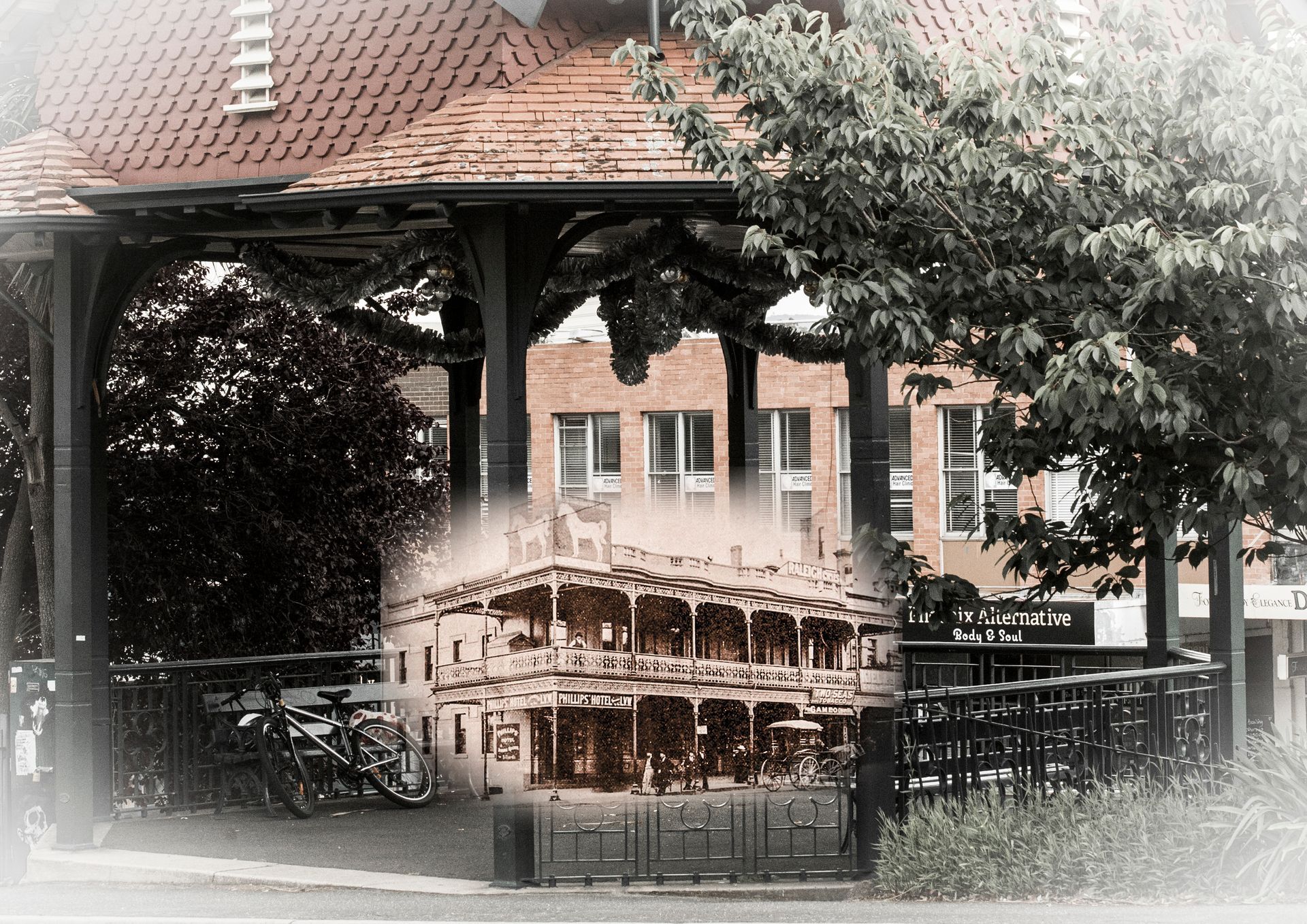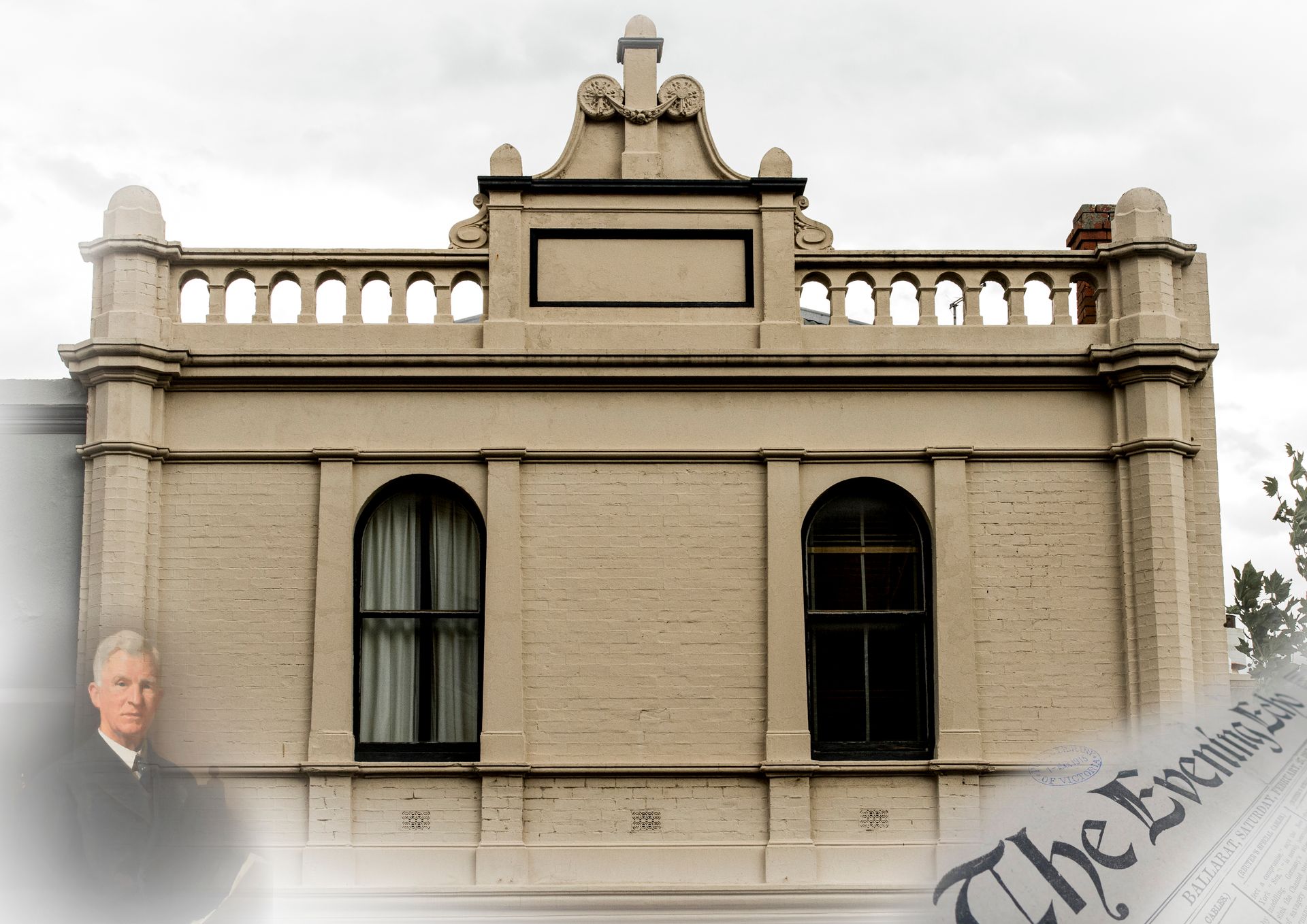Our History - William Guthrie Spence
The Miners and the Shearers
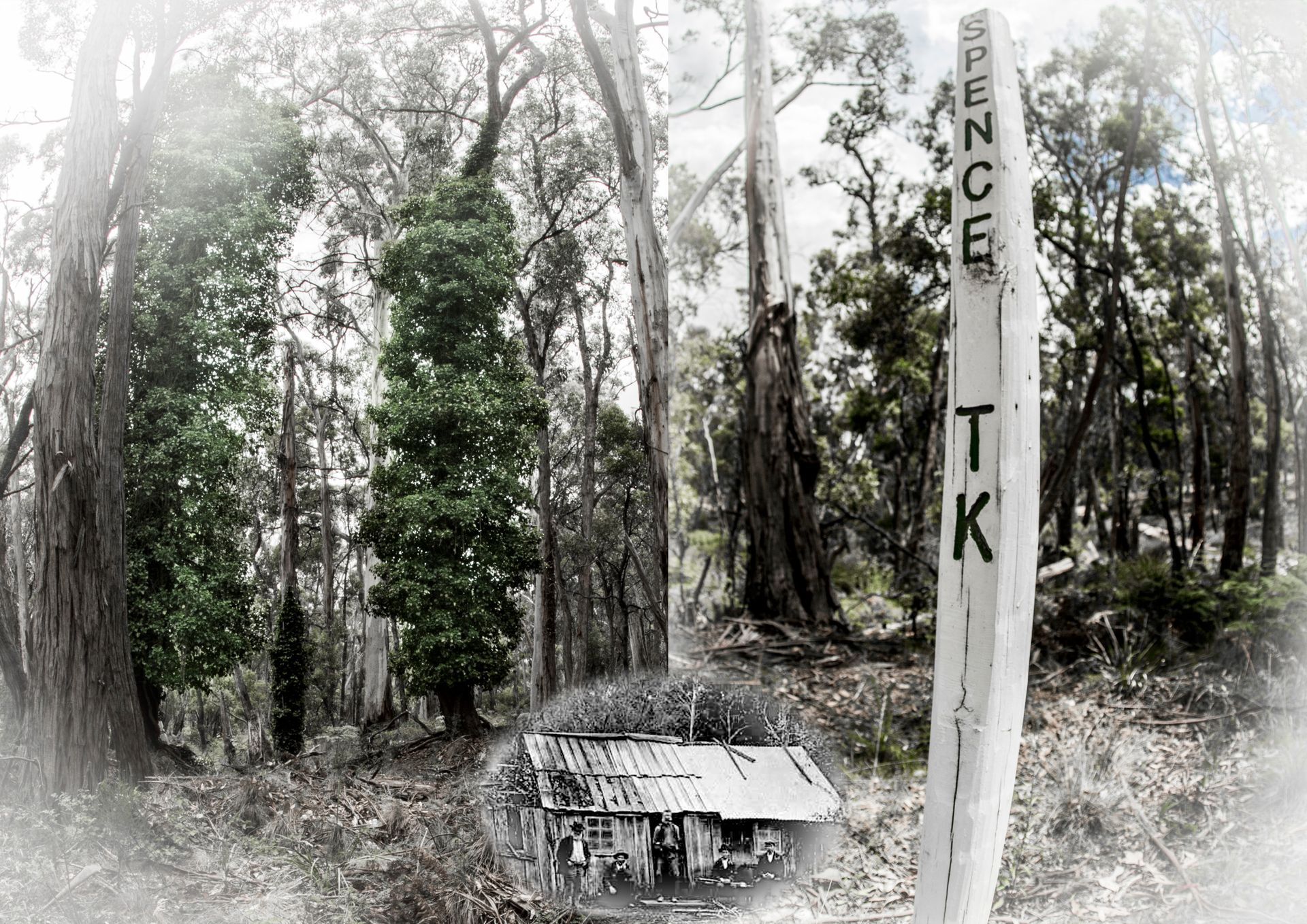
William Guthrie Spence (1846–1926) was a militant, great negotiator and successful organiser of bush-workers. Born in Scotland, Spence was the son of a stonemason who came to Spring Hill near Creswick in 1853; he claimed to have heard the shooting at Eureka in 1954 and saw it as formative on his thinking. He had no formal schooling but “at odd moments” was taught by a graduate of Trinity College, Dublin. A teetotaller, a member of the militia and a leading temperance advocate, prominent in the debating society, he was a Borough Councillor from 1884 and a Justice of the Peace from 1888. “Genial and quite imperturbable, he stands out as the most remarkable man in the remarkable town of Creswick in the eighties.” By 1914-15 Spence was Commonwealth postmaster general. As secretary of the Creswick Miners' Union, with John Sampson (grandfather of Robert Menzies), President, he led 600 men into the Amalgamated Miners’ Association (AMA); both men were later black-balled by the mine-owners. Spence had no illusions about the need to protect workers from exploitation and that the workers themselves through Trade Unions had to fight for all they have and had against them “all the powers of law and law makers, of pulpit, press and platform.” Perhaps most surprising, was his early recognition of the importance of women to the movement. “The unemblazoned courage of the wives of trade unionists locked out or on strike can never become known or appreciated until the world becomes humanitarian instead of commercial. The grit that enable men, women, and children to go hungry to bed every night… are the true heroes and heroines of the world.” Spence was elected as a delegate from the AMA to Ballarat Trades and Labour Council in 1887.



